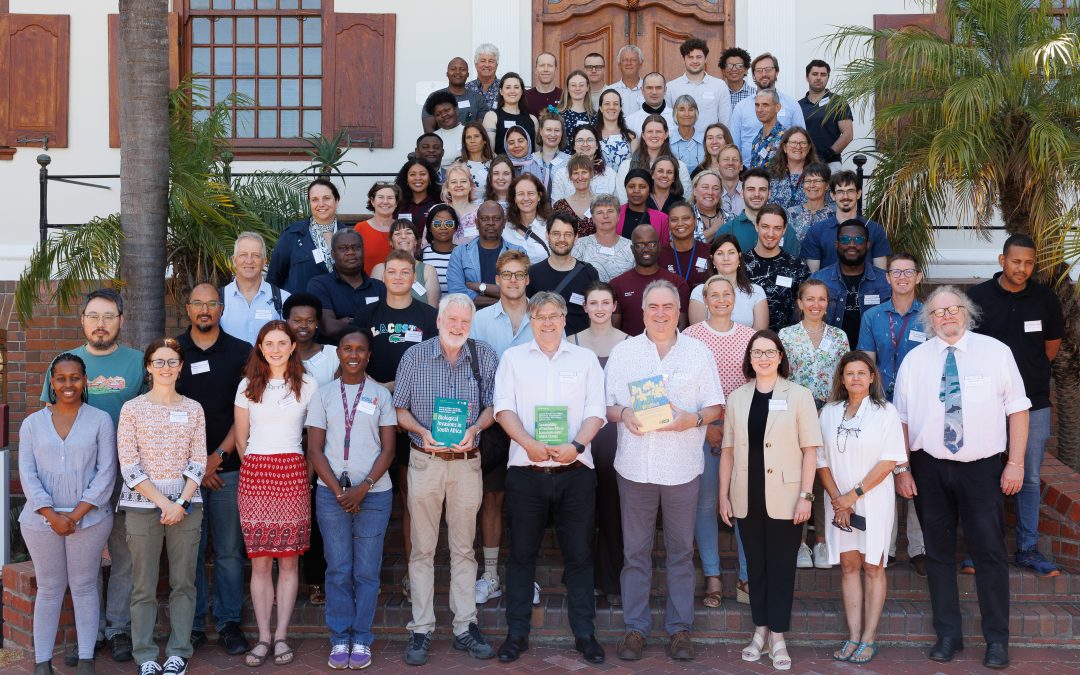The School for Climate Studies (SCS) and the Centre for Invasion Biology (C·I·B) hosted their first combined Annual Research Meeting on 13 and 14 November 2024 in Stellenbosch.
SCS and C·I·B’s Director, Prof Guy Midgley, kicked off the meeting by emphasising the intersection of invasion biology and climate change, highlighting how these two areas are increasingly intertwined.
One of the aims of the Annual Research Meeting is to give post-graduate students the opportunity to present their research and results. Students presented their work in research pods with topics ranging from climate change, blue carbon, invasion dynamics, monitoring and management, and thermal adaptation. Adding to the meeting’s programme was keynote addresses from various spheres.
The first keynote address was delivered by Prof Melodie McGeoch, Professor of Ecology and Academic Director research performance at Monash University, Australia, and a former Core Team Member of the C·I·B. Her address, began with small-scale examples, gradually building up to emphasise the critical role of biodiversity monitoring and well-structured data management systems to support evidence-based policy decisions, particularly in an era where environmental changes are increasingly rapid and complex.
“Anthropogenic factors such as climate change provide the perfect Petri dish for alien species to multiply and spread. Our decisions and actions must be rooted in a comprehensive understanding of this threat and its future implications. And I think that’s the call to us. Not only for invasions, but for the interaction between climate change and invasions,” emphasises Prof McGeoch.
In a very interesting presentation by Mr Peter Lukey, Chief Director: Environment Knowledge and Information at the Department of Forestry, Fisheries and the Environment (DFFFE), he shared his research and insights on the barriers to the use of evidence for policy making.
He concludes, “Bridging the science to policy gap needs far more than just a productive science-policy dialogue. It needs an effective science-public dialogue.”
Dr Raquel Garcia’s keynote address set the scene for the second day’s presentations with her research on what climate change and plant invasions do to micro habitats—how they change them, and the implications for cold-blooded animals.
The meeting concluded with an awards ceremony recognizing outstanding contributions from students, and the winners of the best PhD and MSc presentations were celebrated for their exceptional work, each earning a travel grant.
The award for best PhD presentation was awarded to Penny Richardson, and Aidan Bossert was named winner of the best MSc presentation.
Photo credit: Ignus Dreyer, Stellenbosch University

